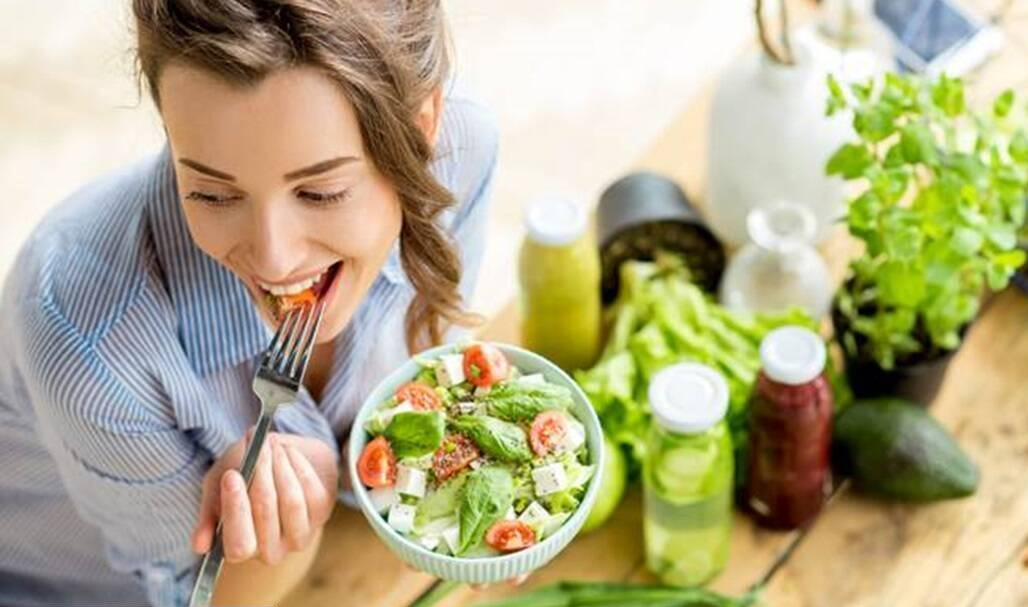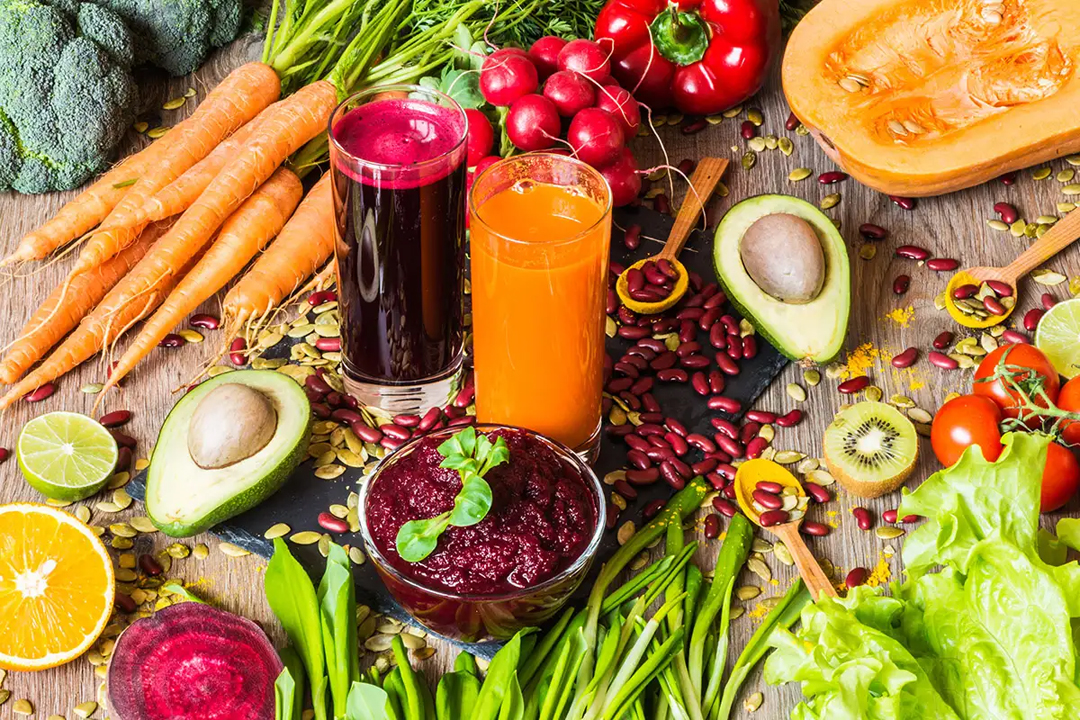
Fruits and vegetables are at their nutritional best in their raw state but, the idea of maintaining a constant diet of uncooked food would be less than appealing. There are many people who are happy to follow a raw food diet, often claiming that it makes them feel more energetic and ‘alive’. They believe that cooking and processing not only damage the nutritional quality of food, but also reduce its health-giving properties. It is true that the nutritional content of fruit and vegetables is reduced through exposure to heat and water, especially in terms of water-soluble vitamins.
Fruit and vegetables make up the bulk of the raw food diet, but it may contain a little dairy produce and oil, both of which are likely to have under-gone some form of processing. Beans, pulses, rice and other grains, pasta and potatoes are excluded as they cannot be eaten unless they are cooked-whether boiled or baked into bread.
As the raw food diet is based on fruit and vegetables, it provides plenty of B vitamins, vitamins C, beta carotene and potassium. The diet is high in insoluble fiber, which means that constipation is unlikely. However, an excessive intake of raw food can lead to irritable bowel syndrome. The diet is also high in soluble fibre, which is associated with a reduced risk of. heart disease. Furthermore a high consumption of fruit and vegetable is believed to increase stamina, help the body to fight infection, and to protect against some forms of cancer.
The raw food diet tends to be low in fat-and thus low in calories-so it is likely to promote weight loss in most people. The diet is likely to be deficient in iron. If dairy products are excluded, it may also be lacking in adequate supplies of other vital nutrients, such as calcium, vitamin B12 and protein.
Eaten for a week or so, the raw food diet is said by some to detoxify the system, improve vitality and may indeed help people to lose a few pounds. Others dispute this claim, and argue that the body’s capacity to detoxify chemicals is reduced, and that much of the weight lost will be water, not fat. If you are considering adopting a raw food diet for any longer than a week or two, it would be wise to consult a qualified dietician first.
BENEFITS OF PROTEIN:
Protein helps to maintain and prevents catabolism of the muscle. This is important to maintain a strong inner core and a healthy frame. By far the best raw source of protein is nuts, which are packed with protein.
Although the quality of protein from individual plant foods is lower than that from foods of animal origin, the overall protein quality will be just as high if a good variety of plant proteins is consumed. Nuts contribute vitamin E, thiamin and niacin, but their high fat content does make them calorific-most contain more than 225 Calories per 55g (20z) serving.
Eat healthy and exercise moderately, incorporating fun and variety to workouts to avoid burnout and boredom. Health and fitness should be lifelong goals, not 4-week tours de force.

